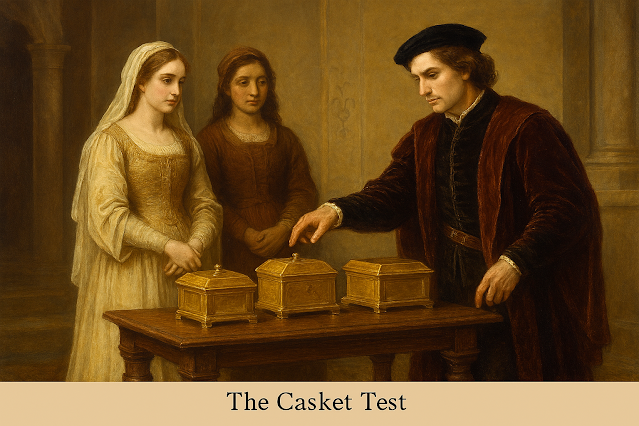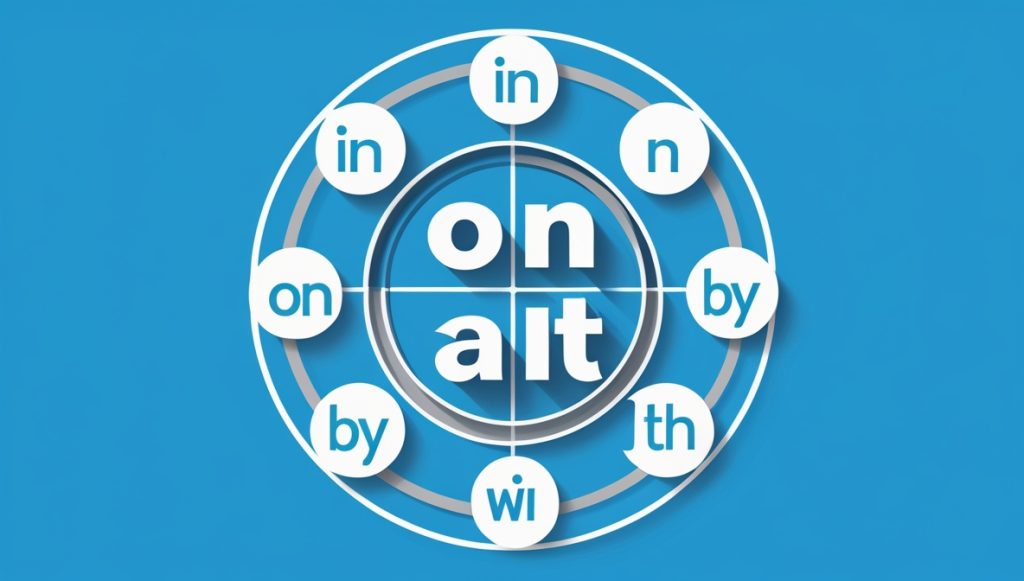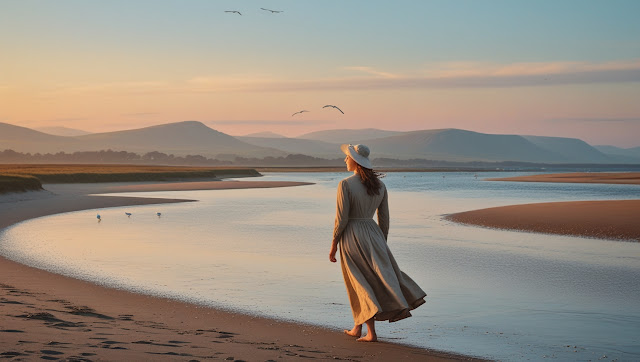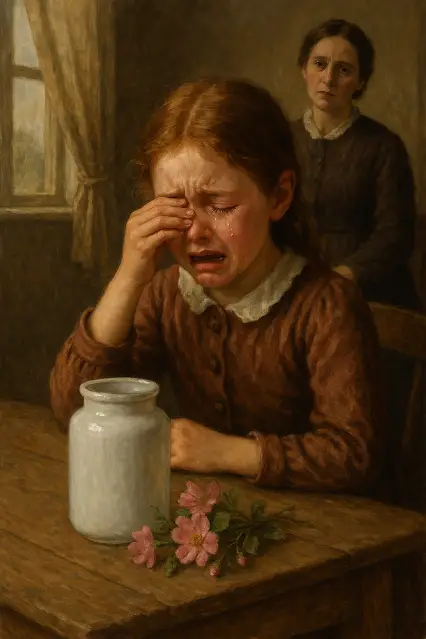Stopping by Woods on a Snowy Evening
By Robert Frost
Whose woods these are I think I know.
His house is in the village though;
He will not see me stopping here
To watch his woods fill up with snow.
My little horse must think it queer
To stop without a farmhouse near
Between the woods and frozen lake
The darkest evening of the year.
He gives his harness bells a shake
To ask if there is some mistake.
The only other sound’s the sweep
Of easy wind and downy flake.
The woods are lovely, dark and deep,
But I have promises to keep,
And miles to go before I sleep,
And miles to go before I sleep.
তুষারে ঢাকা সন্ধ্যাবেলায় বনভ্রমণ
— রবার্ট ফ্রস্ট
যার বন, আমি মনে করি তাকে চিনি।
তার বাড়ি যদিও গ্রামে;
সে আমাকে এখানে থামতে দেখবে না
তার বন তুষারে ভরে উঠতে দেখতে।
আমার ছোট্ট ঘোড়া ভাবতে পারে এটা অদ্ভুত
কোনো খামারবাড়ি ছাড়াই থামা,
বনের মাঝে এবং জমাট হ্রদের পাশে
বছরের সবচেয়ে অন্ধকার সন্ধ্যায়।
সে তার লাগামের ঘণ্টা ঝাঁকায়
জানতে চায়, কোনো ভুল হয়েছে কি না।
আর কোনো শব্দ নেই, শুধু
হালকা বাতাস আর তুলার মতো তুষারকণা।
বনটি সুন্দর, অন্ধকার এবং গভীর।
কিন্তু আমার কিছু প্রতিশ্রুতি রক্ষা করতে হবে,
আর অনেক পথ যেতে হবে ঘুমোতে যাওয়ার আগে,
আর অনেক পথ যেতে হবে ঘুমোতে যাওয়ার আগে।
Summary:
The poem describes a quiet moment when the speaker stops by a snowy forest on a winter evening. He is captivated by the beauty and stillness of the woods, which are “lovely, dark and deep.” However, despite the peaceful surroundings, he is reminded of his responsibilities and commitments. The poem ends with the famous lines:
“And miles to go before I sleep,
And miles to go before I sleep.”
These lines symbolize the journey of life and the duties one must fulfill before resting or reaching the end.
এই কবিতায় কবি এক শীতের সন্ধ্যায় তুষারে ঢাকা এক বনভূমির পাশে থেমে যান। তিনি বনভূমির নিস্তব্ধতা ও সৌন্দর্যে মুগ্ধ হন। চারপাশে শান্ত পরিবেশ, হালকা বাতাস আর তুষারের কণা পড়ছে। তাঁর ঘোড়া এই অদ্ভুত থামায় অবাক হয়, কারণ আশেপাশে কোনো খামারবাড়ি নেই।
যদিও বনটি “সুন্দর, অন্ধকার ও গভীর”, কবি মনে করেন তাঁর জীবনে অনেক দায়িত্ব ও প্রতিশ্রুতি রয়েছে। তাই তিনি সেখানে থেমে থাকতে পারেন না। কবিতা শেষ হয় সেই বিখ্যাত পংক্তি দিয়ে:
“আর অনেক পথ যেতে হবে ঘুমোতে যাওয়ার আগে,
আর অনেক পথ যেতে হবে ঘুমোতে যাওয়ার আগে।”
এই লাইনগুলো জীবনের যাত্রা ও দায়িত্বের প্রতীক, যা পূর্ণ না করে বিশ্রাম নেওয়া যায় না।
Themes of the Poem
- Beauty of Nature
The poem celebrates the serene and enchanting beauty of snow-covered woods. The poet is deeply attracted to the calm and quiet of nature. - Peace vs. Responsibilities
It reflects the conflict between the desire for peace and the obligations of life. The poet wishes to stay and enjoy the woods but remembers his duties. - Life’s Journey and Duty
The repeated line “And miles to go before I sleep” symbolizes the long journey of life and the responsibilities that must be fulfilled before rest or death. - Temptation and Self-Control
The woods tempt the poet to stay, but he resists because of his promises. This shows the struggle between personal desires and moral obligations. - Mortality and Death
The word “sleep” is often interpreted as a metaphor for death, suggesting that life is short and full of duties before eternal rest. - Isolation and Reflection
The poet is alone in the woods, which creates a moment of introspection and contemplation about life and its meaning.
Questions from English for Today
- Do you enjoy natural beauty like flowers, trees, woods, hills, etc.?
Yes, natural beauty is soothing and refreshing. It gives peace and joy to the mind. - Have you ever been to a place where you enjoyed such beauty? If yes, briefly describe it.
Yes, I visited a hill station where the green hills, flowing rivers, and forests created a calm and beautiful environment. - Where do you think the poet is going? Why is he going there?
The poet is going home or to a destination where he has responsibilities and promises to fulfill. - Why did the poet stop by the woods though it was dark and he was alone?
He stopped because the beauty of the snow-covered woods attracted him and gave him peace. - Guess what promises the poet had to keep before he would sleep.
The promises refer to his duties and responsibilities in life that he must complete before resting or dying. - Write an imaginary dialogue between the poet and his horse.
- Poet: “These woods are so lovely. I want to stay here for a while.”
- Horse: “But master, it’s getting dark. We have a long way to go.”
- Poet: “I know, but this beauty is irresistible.”
- Horse: “Remember your promises. Let’s move on.”
- Poet: “You’re right. Let’s go.”
Questions for More Practice
(a) Why and when did the poet stop by the woods?
He stopped on a snowy evening to enjoy the beauty of the woods.
(b) What does the dark and deep woods symbolize?
They symbolize peace, mystery, and perhaps death or eternal rest.
(c) How does the horse of the poet react to his stopping by the woods?
The horse feels surprised and shakes its harness bells as if asking why they stopped.
(d) The woods are lovely, dark and deep – What does the poet want to mean by this expression?
The poet finds the woods beautiful, mysterious, and full of depth, which makes them enchanting.
(e) Where does the poet stop? What was the speciality of the place?
He stops by a forest filled with snow. Its speciality is its calm, quiet, and serene beauty.
(f) There is a great telepathy between the poet and the horse – How will you prove it?
The horse senses the poet’s unusual behavior and reacts by shaking its bells, showing a silent understanding.
(g) Explain: “But I have promises to keep, And miles to go before I sleep.”
These lines mean the poet has duties and responsibilities to fulfill before he can rest or die. “Sleep” is a metaphor for death or rest.
(h) Why did the horse shake his harness bells?
The horse shook its bells to express surprise and remind the poet that stopping there was unusual.
(i) Do you find any universal traits in this poem? If yes, show it in brief.
Yes, the poem reflects universal human traits like the desire for peace, attraction to beauty, and the sense of responsibility.
(j) The poet suffers from a mental conflict between his obligations and his desire for peace of mind – How?
He wants to stay in the peaceful woods but remembers his duties, which force him to continue his journey.
(k) How does the first stanza of the poem show the poet’s sense of the offence of trespassing?
The poet wonders if the owner of the woods knows him and realizes he is on someone else’s property, showing his awareness of trespassing.
Extra Questions:
1. Where do you think the poet is going? Why is he going there?
Answer:
The poet is likely heading toward a destination where he has responsibilities or duties to fulfill. He is going there because he has made promises and commitments that he must keep.
2. Why did the poet stop by the woods though it was dark and he was alone?
Answer:
The poet stopped by the woods because he was enchanted by their quiet beauty. Despite the darkness and solitude, the peaceful snowfall and serene atmosphere drew him to pause and admire the scene.
3. Guess what promise the poet had to keep before he would sleep.
Answer:
The promise symbolizes the poet’s obligations in life—his duties, responsibilities, and commitments. “Sleep” may metaphorically represent death, so the poet is saying he must fulfill his life’s responsibilities before he can rest.
4. Write an imaginary dialogue between the poet and his horse.
Answer:
Horse: Master, why have we stopped here? There’s no farmhouse nearby.
Poet: I know, but look at the woods—so quiet, so beautiful in the snow.
Horse: It’s getting dark, and we’re all alone.
Poet: True, but this moment feels peaceful. I just wanted to take it in.
Horse: Don’t forget, you have promises to keep.
Poet: You’re right. Let’s continue. We still have miles to go before we sleep.





